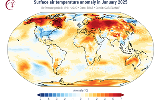* Sold out as of today, 4/24 *
Feel free to text or call me to ask about cancellations, to be placed on a waiting list, or for information about local folk selling nucs later this spring.
*******************************************************
2025 BEES!
Prices are identical to last year's! And, like last year, Agricultural Hall is only selling packages. Ag Hall sold 5-frame nucleus colonies (nucs) for two years, but not this year. Nevertheless, if your heart is set on a nuc, call or send an email and I will share names of local beekeepers selling local nucs.
Bee packages sold by Agricultural Hall are supplied by local dealers (Autumn Morning Farm & Summer Beez) who drive south every spring, pick up 3lb packages from bee-breeder farms (most of which are in Georgia), and hurry back within 24 hours, usually with about 400 - 800 packages in tow! I pick them up within a few hours of their arrival in New England and bring them to Agricultural Hall where you can meet and take home your new bees!
| Variety | Marked Queen ? | Arrival Date (est.) | Price |
| Buckfast | sold out | March 31 (Monday) | $180 |
| Buckfast | sold out | March 31 (Monday) | $175 |
| Varroa Sensitive Hygienic (VSH) | sold out | March 31 (Monday) | $180 |
| Varroa Sensitive Hygienic (VSH) | sold out | March 31 (Monday) | $175 |
| Varroa Sensitive Hygienic (VSH) | sold out | April 28 (Monday) | $160 |
| Varroa Sensitive Hygienic (VSH) | sold out | April 28 (Monday) | $155 |
| Buckfast | sold out | April 28 (Monday) | $180 |
| Buckfast | sold out | April 28 (Monday) | $175 |
To order your bees:
Send an email to 2025Bees(at)AgHall.com, and please tell me:
1) How many packages you'd like; and2) Whether you want a marked or unmarked queen.
3) Please also include a phone number where I can reach you in a pinch. (Sometimes things move quickly when the bees come to town.)
I'll respond with a confirmation email, along with payment instructions.
**********************************************************************************************
| Some characteristics of VSH & Buckfast stocks: |
VSH: Selective breeding of Varroa Sensitive Hygienic (VSH) bees by the USDA (Pol-line) and independent breeders encourage hygienic/anti-mite behavior; the workers are more likely to remove varroa-infested pupae from capped brood cells before the mite reproductive cycle is complete. They are not guaranteed to survive varroa infestations and, in fact (like all Apis mellifera varieties) they will very likely succumb to mites and/or the many diseases they vector if not managed properly, but VSH bees are generally better at suppressing varroa population growth.
Buckfast: Originally bred over 105 years ago by Brother Adam at Buckfast Abbey in Britain, Buckfasts proved resistant to tracheal mites, then ravaging Britain's honeybee populations. Buckfast are desirable on almost all fronts; brood and honey production are high, swarming drive is low, and continuing breeding programs have also produced Varroa mite-resistant progeny. Little wonder it is sometimes called the "Beekeeper's Bee."
Again, there are always variations from colony to colony, even within varieties.
For more details, see;
https://www.beesource.com/resources/usda/the-different-types-of-honey-bees/
...or do a Web search. There's a lot of info out there!!
**********************************************************************************************
Ordering notes & tips:
> Aim for early bees. It's not unusual to hive packages with snow still on the ground. And if you successfully hive a package by early April, you could be taking honey in June. Later packages seem to merely survive, but not always thrive, ...until year two.
> Dates are estimates. We can hope and cross our fingers, but they'll come when they come. Most arrive on time or, frequently, a day early. Weather is the biggest determinant.
> In general, I will replace dead queens as long as you report them to me within three days of their arrival at Ag Hall. I will try to offer replacement queens for virgin and poorly mated queens, but they must be reported to me within 8 days.
> Suppliers will not replace packages, and neither can I. The 7-10 days after hiving a package are critical, and it is important that you monitor your queen's behavior thoroughly and keep the colony well fed and protected from extreme weather. Please feel free to call with any questions -- I can usually help you through any rough patches.

